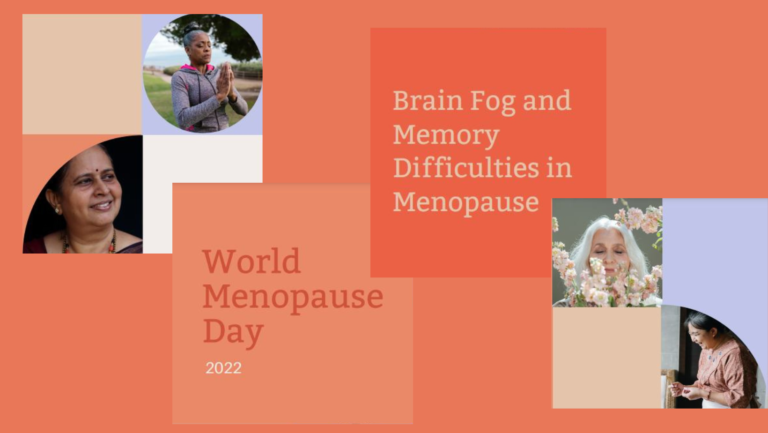
Do you ever have those days? Or even those moments?
I know I do. The moment you forget what you are going to say, or even a word for something. I can be in the middle of a sentence and can’t come up with the right word to say. Or, I can see the face of the person in my head but can’t put the name to the face. It’s so frustrating!! Then I begin to think, “am I getting dementia?”
It’s a scary feeling.
October is World Menopause Month. The theme this year is Brain Fog and Memory Difficulties in Menopause.
What is Menopausal Brain Fog?
According to the World Menopause Society,
“Menopause brain fog is a group of symptoms that happens around the time of the menopause, including difficulty remembering words and numbers, disruptions in daily life (misplacing items like keys), trouble concentrating (absent-mindedness, losing a train of thought, being more easily distracted), difficulty switching between tasks, forgetting the reason for doing something (like why you came into a room), and forgetting appointments and events.”
Research studies find that women’s memory does, in fact, change at menopause, so these complaints are real–it’s not in your imagination. Brain fog is normal and common in midlife. These bothersome problems can affect your quality of life. However, they are usually quite mild and will improve post-menopause.”
Nearly two-thirds of women report experiencing brain fog and difficulties with memory. But don’t worry, it is not related to dementia. It is more about the decline of estrogen and progesterone as we move through perimenopause. The onset of dementia happens around the age of 65.
So then, what’s a girl to do? Here are a few tips to help you out:
- Eat a healthy diet by eliminating processed foods and sugar. A Mediterranean
diet is a simple diet to follow. - Eat a rainbow. Eat a variety of fruits and vegetables in different colors. There are helpful benefits in each color.
- Avoid smoking and illicit drugs, and drink in moderation.
- Get physical activity most days of the week.
- Keep a healthy weight.
- Mindfulness and meditation may be helpful.
Hormone replacement therapy is an effective way to manage menopause symptoms. If you are considering using HRT, discuss your options with your healthcare provider. Bioidentical hormone replacement is recommended over the use of synthetic hormones.
For more menopause support, let’s chat. Click on the link to my calendar.


